Design Optimization Toolset
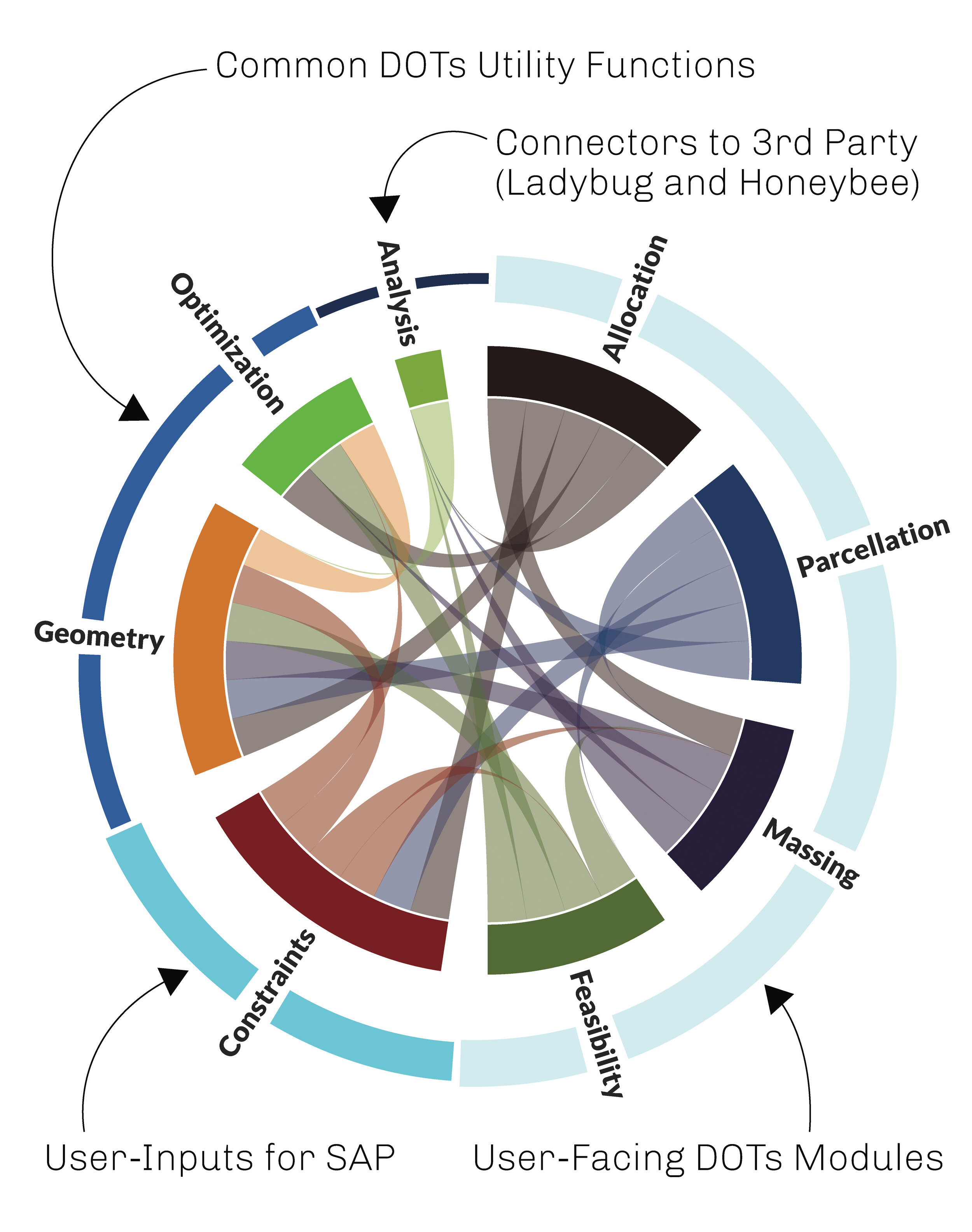
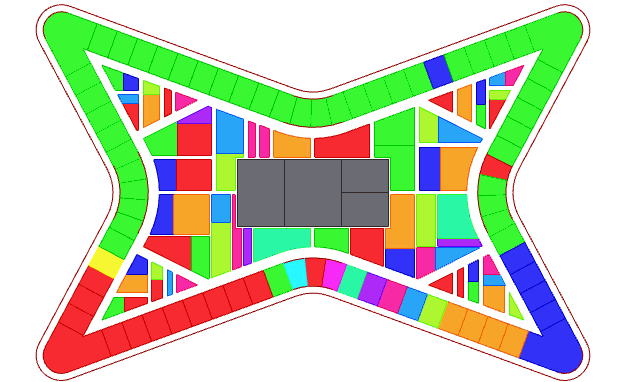
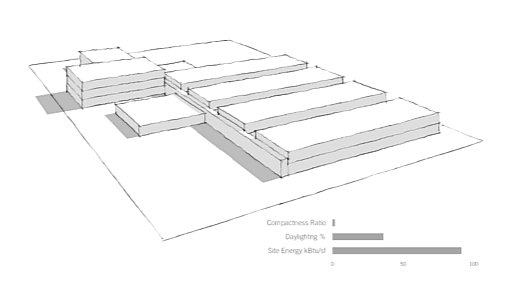
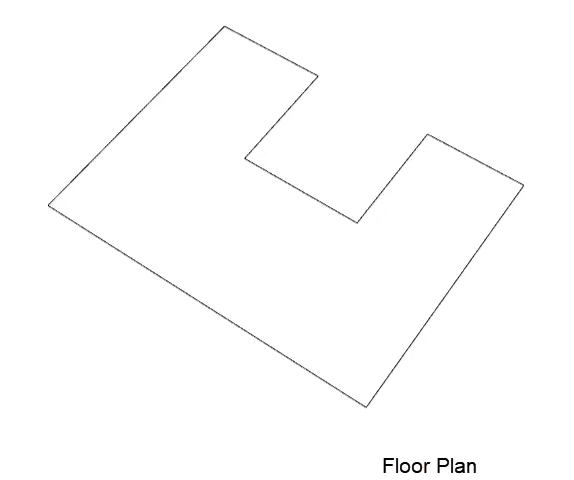
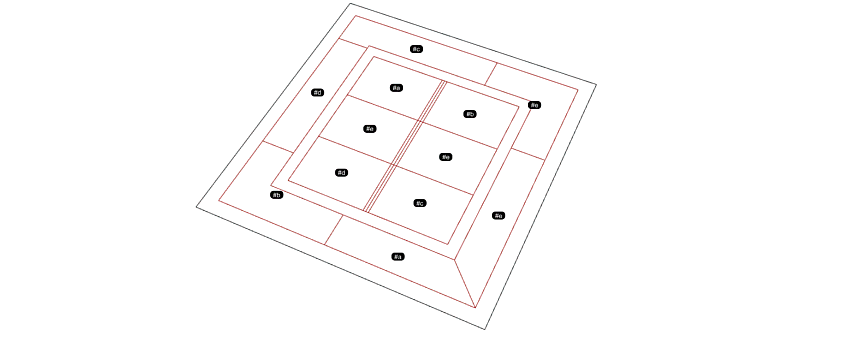
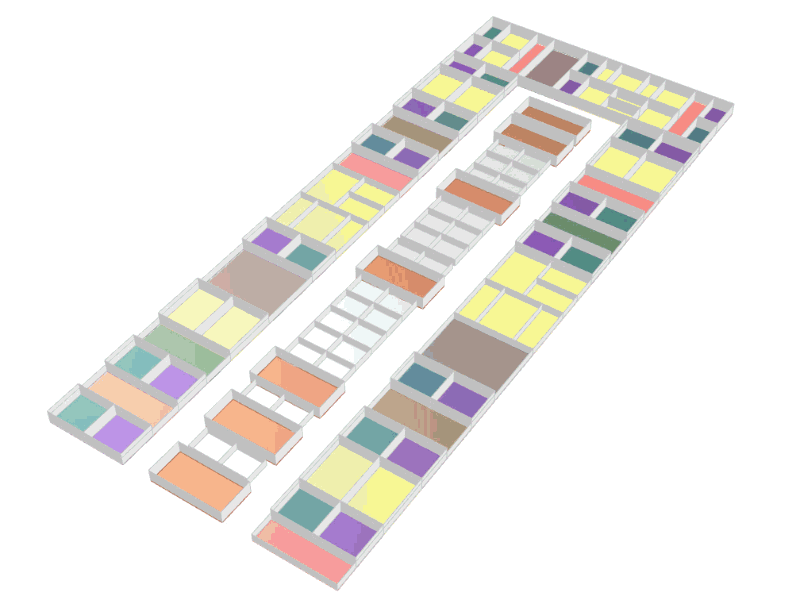
The Space Allocation Problem
In the domain of architecture and planning, the space allocation problem (SAP) is a general class of computable problems that is employed by numerous design processes to assist in the generation of spaces of a layout, and simultaneously satisfy design objectives. The SAP has eluded automation due to combinatorial complexity and geometric intractability. This thesis describes a computational framework for solving the SAP across multiple scales and domains of the application using reinforcement learning algorithms that generate spatial solutions with optimal space-activity relations. In this research, a broad range of computable problems is addressed across three scales of design processes; namely space planning, site planning, and interactive networks of city blocks.
The outcome of this research is a user-friendly, freely accessible Rhino-Grasshopper (C#) plugin, namely, the Design Optimization Toolset or DOTs, a compilation of the proposed SAT. DOTs allows designers to interactively explore geometrically complex design alternatives that meet project-specific constraints. Professional designers have applied DOTs in space planning, site parcellation and massing, and urban design problems that integrate with performance analysis to enable a holistic, semi-automated design exploration.
DOTs is available for general use at github.com/nirvik00/DOTS
Project Date: 2019 - Present
Researchers: Nirvik Saha, Dennis Shelden, John Haymaker, Perry Yang
Collaborators: Georgia Tech, Perkins&Will
Sponsors: Perkins&Will
Publications:
"Space Allocation Techniques" in the Proceedings of the ACADIA 2020 Distributed Proximities Conference, 2020
Thesis: Saha, Nirvik. “The space allocation problem.” (2020). Available at https://smartech.gatech.edu/handle/1853/63641
Yang, P., Soowon Chang, Nirvik Saha and Helen H. W. Chen. “Data-driven planning support system for a campus design.” Environment and Planning B: Urban Analytics and City Science 47 (2020): 1474 - 1489.
Rezaee, R., T. Marshall, M. Bernal, Nirvik Saha and J. Haymaker. “Constructing and Exploring Building Configurations Based on Design and Multi Performance Criteria.” (2020).
Chang, Soowon, Nirvik Saha, D. Castro-Lacouture and P. Yang. “Multivariate relationships between campus design parameters and energy performance using reinforcement learning and parametric modeling.” Applied Energy 249 (2019): 253-264.
Chang, Soowon, Nirvik Saha, D. Castro-Lacouture and P. Yang. “Generative design and performance modeling for relationships between urban built forms, sky opening, solar radiation, and energy.” Energy Procedia 158 (2019): 3994-4002.
Vasanthakumar, S., Nirvik Saha, J. Haymaker and Dennis R. Shelden. “Bibil: A Performance-Based Framework to Determine Built Form Guidelines.” (2017).
